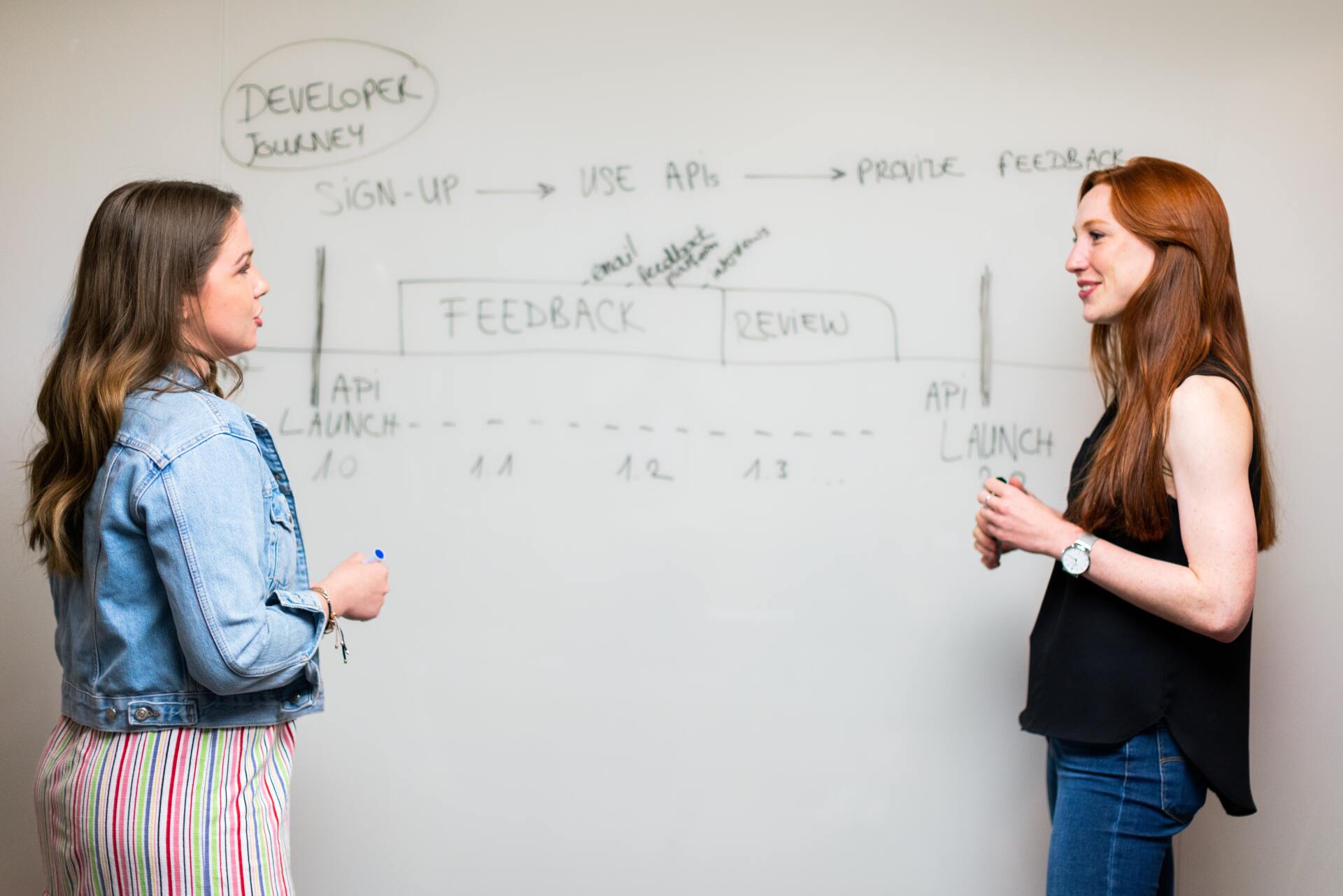Software Developers in the Netherlands
What is a Software Developer?
As a software developer, you'll be responsible for designing, building, and maintaining software applications that make people's lives easier. This can include computer programs, mobile apps, and other digital products.
The specific tasks you'll work on will depend on the project and role you have. However, some common duties and responsibilities of software developers include:
- Developing software applications: Creating software that meets users' needs by writing and testing code.
- Collaborating with a team: Working closely with other developers, designers, project managers, and stakeholders to achieve success.
- Analysing user requirements: Understanding what users want and need to create effective software.
- Debugging and testing: Identifying and fixing software bugs to ensure quality and reliability.
- Updating and maintaining software: Keeping software up-to-date and working correctly over time.
- Staying up-to-date with industry trends: Keeping informed about the latest technology trends to remain competitive.
- Continuous learning: Continuously learning new programming languages, frameworks, and tools to stay ahead in the field.
If you're considering becoming a software developer, it's crucial to understand these responsibilities. Continuous learning and staying up-to-date with industry trends are essential for success in this field. With this knowledge, you can pursue a fulfilling career in software development.
Software Developer Jobs in the Netherlands
How to become a Software Developer in the Netherlands
To succeed as a software developer, it's crucial to master essential skills and qualifications. These include strong programming skills in languages such as Java, Python, C++, JavaScript, or Ruby. Exceptional problem-solving skills are also a must, as developers must break down complex problems into smaller tasks. Paying attention to detail is essential to avoid any minor code errors that could cause significant issues.
Collaboration and teamwork are also vital skills, as developers must work effectively with other team members, such as designers, project managers, and other developers, to create high-quality software applications. Effective communication skills are equally important, as developers must be able to communicate technical information to non-technical stakeholders in a clear and concise manner.
While a bachelor's degree in computer science or a related field is usually required for software development roles, relevant work experience may also be considered.
Possessing these essential skills and qualifications can help software developers thrive in this constantly evolving and dynamic field. Invest in mastering these skills to increase your chances of success as a software developer.
Software Developer Salary Netherlands
According to Glassdoor, the average salary for a Software Developer is EUR 70,000 per year. The average workweek is typically about 40 hours, and an employee may work the occasional evening or weekend. The starting salary may depend on experience, location and company.
View our
Tech Salary Guides broken down per location for more information.

Role of a Software Developer in a Dutch Business
A software developer is responsible for designing, developing, testing, and maintaining software applications that are used in a business. Their role is critical in ensuring that the company's software systems and applications are functioning efficiently and effectively. The following are the key responsibilities of a software developer in a business:
- Design and development: The software developer designs and develops software applications according to the business requirements. They create software solutions that automate and streamline business processes and improve the efficiency of the company's operations.
- Testing: A software developer is responsible for testing software applications to ensure that they meet the required standards of quality, functionality, and performance. They identify and resolve any bugs or issues that arise during the testing process.
- Maintenance: After the software application has been deployed, the software developer provides ongoing maintenance and support to ensure that the application remains functional and up-to-date.
- Collaboration: A software developer works collaboratively with other departments in the business, such as product managers, designers, and project managers, to ensure that software applications meet the business requirements and deliver value to the company.
- Innovation:
A software developer also plays a key role in innovation, keeping up with emerging technologies and trends to identify new opportunities for the business to improve its operations and deliver value to its customers.
Software Developer Experience Requirements
If you're looking to become a software developer, you'll need to meet certain experience requirements that can vary depending on the role and the company you're applying to. Employers generally look for candidates who possess the following skills and experiences:
- Technical skills: Proficiency in one or more programming languages, such as Java, Python, C++, JavaScript, or Ruby, is essential for software developers. You should also be familiar with databases, software development tools, and testing frameworks.
- Industry experience: Previous experience in the software development industry, whether through internships, freelance work, or full-time employment, is highly valued by employers.
- Project management experience: Some employers may require software developers to have experience in managing software development projects. This involves knowledge of Agile methodologies, project planning, and task management.
- Communication and teamwork: Effective collaboration with other developers, designers, and stakeholders requires software developers to be excellent communicators and team players.
- Continuous learning: The software development industry is constantly evolving, so a passion for learning and keeping up with new technologies and trends is critical.
- Problem-solving skills: Identifying problems and developing solutions that meet user needs while adhering to project timelines and budgets are critical skills for software developers.
- Adaptability:
As projects evolve, software developers must be able to adapt to new technologies, programming languages, and development environments.
Software Developer Interview Questions
- What platforms do you use to overcome a coding problem?
- How do you remain informed about recent trends in technology, especially within your field?
- How do you explain to a non-technical person what object-oriented programming is?
- What lessons have you learned from a past software project you weren't pleased with when it was finished?
- What do you consider the pros and cons of using the Agile model in software development?
- In simple terms, describe the software development process.
- What do you do to ensure that your software is free of bugs?
- As a new developer, what would you consider your core responsibilities?
- What metrics do you use to review another colleague's code?
- What informed your decision to become a software developer?
- What are the key differences between procedural and object-oriented programming?
- How do you ensure that your code is maintainable, scalable, and reusable?
- Can you explain the difference between agile and waterfall software development methodologies?
- How do you approach debugging a complex code issue?
- Can you give an example of how you’ve incorporated user feedback into your development process?
- Can you describe your experience with version control systems, such as Git?
- How do you ensure that your code is secure and protected against common vulnerabilities?
- Can you walk me through your process for designing and implementing a new feature or application?
- How do you stay current with new technologies and programming languages?
- Can you give an example of a particularly challenging project you’ve worked on, and how you approached the problem?
For more information and advice on interviewing check out our blogs below:
How to succeed in a Technical Interview
How to prepare for your interview






